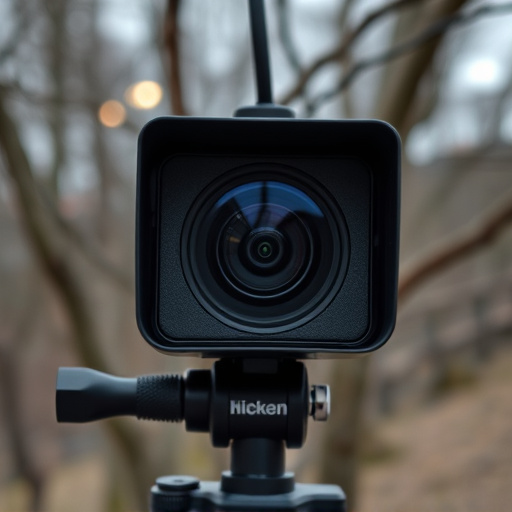Renters interested in discrete security cameras should strategically place them in high-risk areas like entry points, kitchens, and stairwells using unobtrusive methods. Understand local privacy laws regarding surveillance, consult legal experts for guidance. Choose compact, durable, high-quality cameras with motion detection and cloud storage. Implement robust network security measures to protect footage and data, maintain strict access controls.
“Uncover the art of discreetly securing your rental properties with the latest in covert camera network technology. This comprehensive guide explores best practices for installing discrete security cameras, catering specifically to renters. From understanding subtle camera placement techniques that maintain tenant privacy to navigating legalities and choosing the right equipment, we demystify the process. Learn essential network security best practices to ensure peace of mind without compromising confidentiality.”
- Understanding Discrete Camera Placement for Renters
- Legal Considerations: Privacy Laws and Camera Networks
- Choosing the Right Equipment: Security Cameras for Rentals
- Maintaining Confidentiality: Network Security Best Practices
Understanding Discrete Camera Placement for Renters
For renters considering discrete security camera networks, understanding where to strategically place cameras is key. Unlike homeowners, renters have limited control over their properties and must consider the terms of their lease agreements regarding surveillance equipment. However, this doesn’t mean they can’t take advantage of discrete security cameras for added peace of mind.
Focusing on high-risk areas like entry points (doors and windows), valuable asset locations (kitchens, bathrooms, and offices), and common problem zones (hallways or stairwells) is a good starting point. Opting for non-intrusive camera placements—such as sticking them behind pictures frames, under desks, or integrating them seamlessly into light fixtures—can help maintain privacy while still providing effective security monitoring.
Legal Considerations: Privacy Laws and Camera Networks
When considering a discrete security camera network installation, especially as a renter, it’s crucial to understand the legal considerations surrounding privacy laws and camera networks. Each jurisdiction has its own set of regulations regarding surveillance and data collection, so it’s essential to familiarize yourself with local laws before proceeding.
In many places, landlords or property managers need to obtain explicit consent from tenants before installing security cameras, particularly in areas that can be considered private, like bedrooms or bathrooms. Additionally, there are often restrictions on how long video footage can be stored and who has access to it. Understanding these legal boundaries ensures compliance, mitigates potential legal issues, and upholds the privacy rights of all occupants. For renters interested in discrete security cameras for their rental properties, consulting with a legal professional or a property management expert can provide clear guidance tailored to their specific situation.
Choosing the Right Equipment: Security Cameras for Rentals
When setting up a covert camera network, the equipment you choose is paramount. For renters or those seeking discreet surveillance solutions, selecting the right discrete security cameras is essential. These should be compact, easily installable, and designed with rental in mind—both for their longevity and the fact that they’ll likely need to be moved or relocated frequently.
Opting for high-quality, yet cost-effective, options will ensure you get reliable performance without breaking the bank. Cameras with features like motion detection, night vision, and cloud storage are ideal, as they offer remote access and real-time alerts. Remember, the right equipment can make all the difference in achieving effective covert surveillance while adhering to legal guidelines regarding privacy and recording.
Maintaining Confidentiality: Network Security Best Practices
When setting up a covert camera network, maintaining confidentiality is paramount. Diskretely placed security cameras for renters should adhere to strict network security best practices. This includes utilizing strong encryption protocols like WPA2 or WPA3 for wireless networks to ensure data transmission remains secure. Regularly updating firmware and software to patch known vulnerabilities is crucial. Additionally, implementing firewall rules and setting up virtual private networks (VPNs) can add an extra layer of protection.
Access control measures should be enforced, limiting network access only to authorized individuals with strong, unique passwords. Monitoring network activity for any suspicious behavior or unauthorized access attempts is essential. Employing secure data storage practices, such as encrypting stored footage and regularly backing up sensitive information, will further safeguard personal and confidential data.
When considering discrete security camera networks for renters, it’s essential to balance privacy concerns with effective surveillance. By understanding legal boundaries, choosing the right equipment, and implementing robust network security best practices, you can ensure a secure environment while respecting tenant privacy. Remember that open communication and transparent practices are key to fostering trust in any rental property setup.
